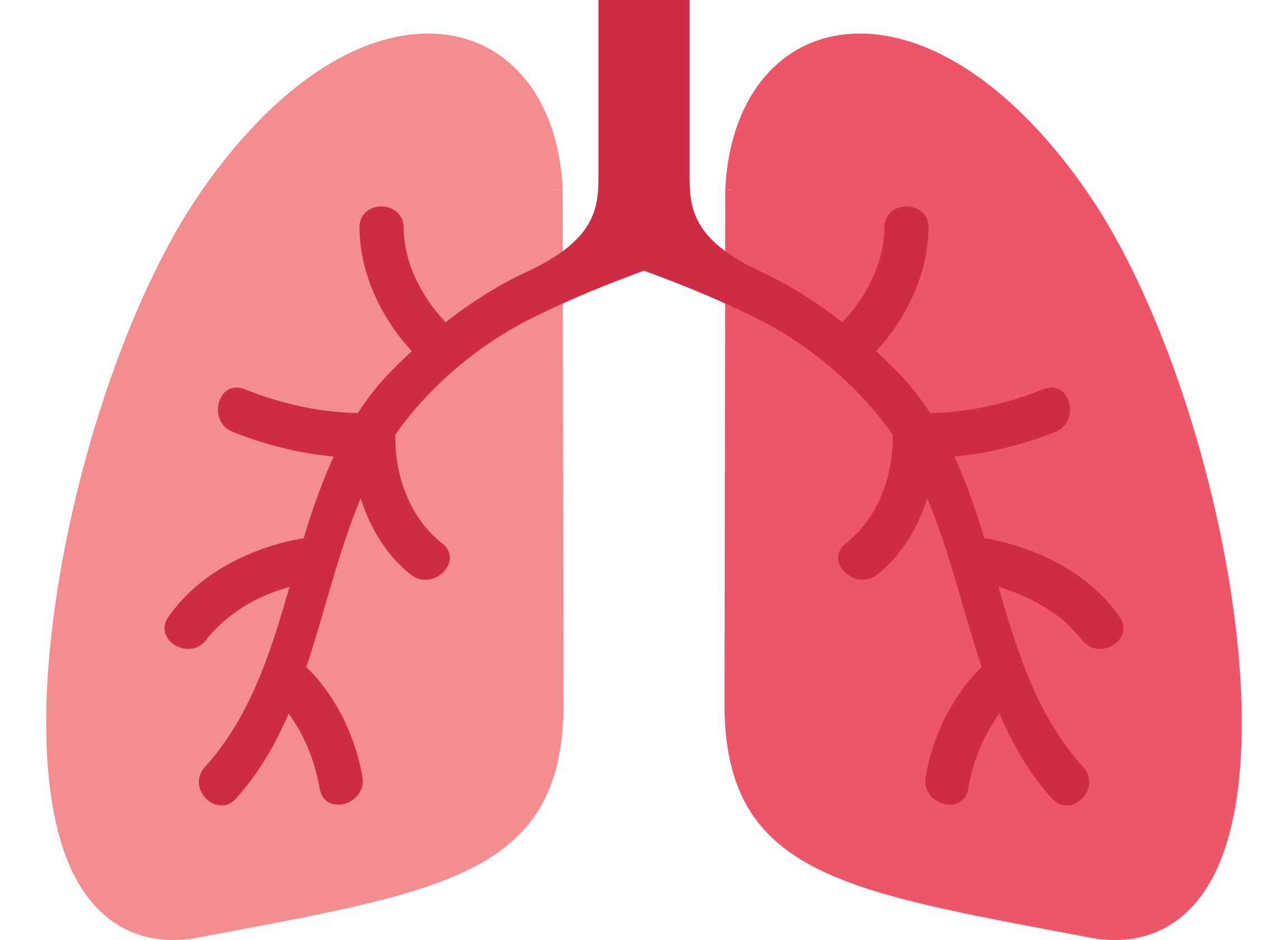Lung cancer is the most common type of cancer in Canada. On average, 81 Canadians are diagnosed with lung cancer every day.1 What’s more concerning is that about half of them are diagnosed with stage 4 lung cancer, an advanced stage with a lower survival rate.2 This helps to explain why lung cancer is also the leading cause of cancer deaths.3

“Lung cancer is a fast-progressing disease which, unfortunately, is usually undetectable until the cancer has spread. This is why screening is part of Canada’s lung cancer control strategy.”4
Dr. Gretty Deutsch
Executive Director, Medical Affairs at Merck CanadaThe impact of COVID-19 on cancer care
The COVID-19 pandemic has created barriers to cancer screenings and care. For example, Ontario’s screening programs for breast, cervical, colorectal and lung cancer did 41% fewer screening tests in 2020 than in 2019.5
While cancer screenings might not feel urgent in the present, their long-term value is certain. Delaying them for too long could lead to a wave of late-stage diagnoses that the health system is not prepared to meet.6 For a patient, screening can be the difference between life and death.
Testing patients at risk of lung cancer can help find cancer at an early stage
While anyone can get lung cancer, some people have a higher risk. For example, these factors raise someone’s risk (chance) of getting lung cancer:
- Smoking tobacco or being around smoke from others
- Living or working in a building that contains radon
- Having a family history of lung cancer
- Having another lung disease, such as COPD
Research shows people who are at a higher risk of lung cancer who underwent low dose computed tomography (LDCT) scans led to significantly lower lung-cancer mortality than those who were not screened.7
You can help – encourage your loved ones at risk of lung cancer to talk to their doctor about testing
Lung cancer touches the lives of many. As we emerge from the pandemic, prioritize your lung cancer testing if you think you’re at risk by talking to your doctor as soon as possible. And encourage your friends and family also at risk of lung cancer to talk to their doctor as soon as possible.
Who can get a lung cancer screening?
If you think you’re at risk or have symptoms of lung cancer, talk to your doctor as soon as possible.
The Canadian Task Force for Preventative Health recommends a yearly lung cancer screening with low dose computed tomography for adults who meet these criteria:
- Are between 55-74 years old
- Have 30 pack-years of smoking
- Currently smoke or quit smoking less than 15 years ago
To know your pack-years:
Multiply the number of cigarette packs smoked per day (1 pack = 20 cigarettes) X the number of years smoking.
For example:
2 packs a day for 15 years = 30 pack years
It is recommended that adults who qualify should have a yearly screening for up to 3 years in a row.8 If you or a loved one meets the criteria, talk to your doctor about lung cancer screening.
Screening should only be done in health care settings with access to expertise in early diagnosis and treatment of lung cancer.9
We’re committed to a better future
While lung cancer poses a threat, the future is hopeful. The lessons learned during the pandemic can help healthcare workers better manage and schedule patient care, such as to:
- Have more flexibility in healthcare access points
- Improve the use of virtual care to lessen breaks and delays in care
Merck is committed to improving lives and making a difference for lung cancer patients. One way we’re honouring that commitment is with our partnership with MaRs: The Lung Cancer Innovation Challenge. This project gives incentives to medical innovators across Canada who focus on creating new solutions to help enhance a lung cancer patient’s journey to enable improved treatment outcomes.
What you need to know about lung cancer
• In 2020, about 13% of all new cancer cases were lung cancers – this means about 1 in 10 people diagnosed with cancer had lung cancer
• 1 in 4 cancer-related deaths in Canada were due to lung cancer in 2020.
• The chance of living for 3 years after being diagnosed with lung cancer is:
– 71% (71 in 100 people) when diagnosed at stage 1
– 5% (5 in 100 people) when diagnosed at stage 4

References
1Canadian Cancer Society, 2020. Lung cancer statistics. Available online: https://cancer.ca/en/cancer-information/cancer-types/lung/statistics (accessed September 2021).
2Canadian Cancer Society, 2020. Canadian Cancer Statistics: A 2020 special report on lung cancer. Available online: https://cdn.cancer.ca/-/media/files/cancer-information/resources/publications/2020-canadian-cancer-statistics-special-re-port/2020-canadian-cancer-statistics-special-report-en.pdf (accessed September 2021).
3Lung Cancer Canada, 2020. 2020 Faces of Lung Cancer Report. Available online: https://www.lungcancercanada.ca/LungCancerCanada/media/Documents/LCC2020_FOLCR_ENGLISH.pdf (accessed September 2021).
4Canadian Partnership Against Cancer. Canadian Strategy for Cancer Control 2019-2029. 2019
5Walker MJ, Meggetto O, Gao J, et al. Measuring the impact of the COVID-19 pandemic on organized cancer screening and diagnostic follow-up care in Ontario, Canada: A provincial, population-based study. Preventive Medicine. 2021;151:106586.
6Maringe C, Spicer J, Morris M, et al. The impact of the COVID-19 pandemic on cancer deaths due to delays in diagnosis in England, UK: a national, population-based, modelling study. Lancet Oncol. 2020;21(8):1023-1034.
7de Koning HJ, van der Aalst CM, de Jong PA, et al. Reduced lung-cancer mortality with volume CT screening in a randomized trial. N Engl J Med. 2020;382(6):503-513.
8Canadian Task Force on Preventive Health Care. Recommendations on screening for lung cancer. CMAJ. 2016;188(6):425-432.
9Canadian Task Force on Preventive Health Care. Recommendations on screening for lung cancer. CMAJ. 2016;188(6):425-432.
10Canadian Cancer Society, 2020. Lung cancer statistics Available online: https://cancer.ca/en/cancer-information/cancer-types/lung/statistics (accessed September 2021).
11Canadian Cancer Society, 2020. Lung cancer statistics Available online: https://cancer.ca/en/cancer-information/cancer-types/lung/statistics (accessed September 2021).
12Canadian Cancer Society, 2020. Canadian Cancer Statistics: A 2020 special report on lung cancer Available online: https://cdn.cancer.ca/-/media/files/cancer-information/resources/publications/2020-canadian-cancer-statistics-special-report/2020-canadian-cancer-statistics-special-report-en.pdf (accessed September 2021).
13Canadian Cancer Society, 2020. Canadian Cancer Statistics: A 2020 special report on lung cancer Available online: https://cdn.cancer.ca/-/media/files/cancer-information/resources/publications/2020-canadian-cancer-statistics-special-report/2020-canadian-cancer-statistics-special-report-en.pdf (accessed September 2021).
CA-NON-01608


